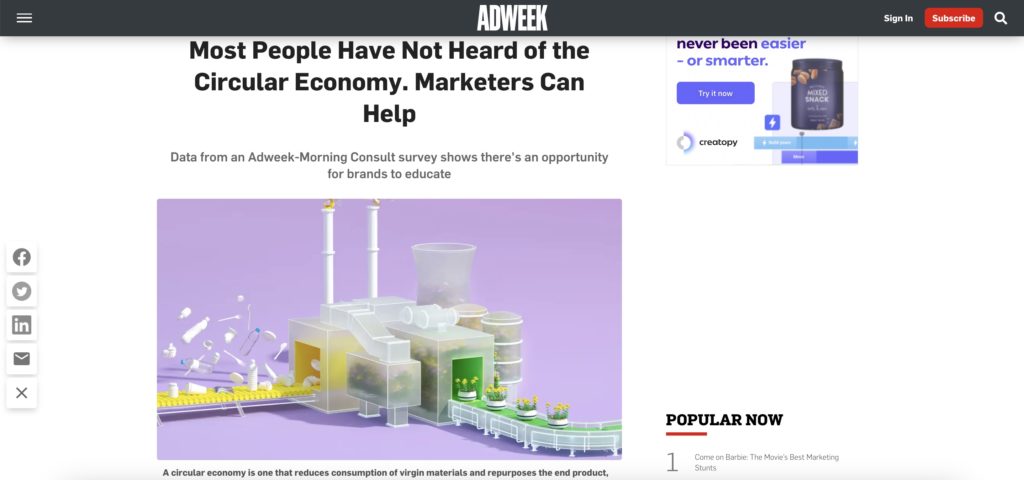AdWeek | The global resale market grew by 22% in 2022 as a growing number of companies are shifting to more circular systems. With greenwashing crackdowns also on the rise, how should brands talk about their efforts to build circularity? Quantis’ Sustainability Consultant and Circularity Expert Matthew Hawthorne spoke with Adweek to discuss how communicators can approach the topic.
At its core, a circular economy is made up of the same three principles that many people have long been familiar with: reduce, reuse and recycle.
“That’s all circularity is about,” Hawthorne explains. “How we reduce our consumption of resources…reuse what we can that we already own…and then, finally, recycle whatever doesn’t maintain its value. How do we try and recover those resources to be used again, to the best of their ability?”
As companies build out resale and take-back programs, innovate with recycled materials and find new uses for their products’ end-of-life, cutting the sustainability jargon is crucial for communicating with the public — especially when it requires the customer to take action.
Anti-greenwashing efforts require companies to prove their environmental claims. What can companies actually do to meaningfully reduce the climate impact and waste created by the industry? Hawthorne spoke to Adweek in another article, “Empowerment Over Shame: thredUP’s Revamped Fashion Footprint Calculator Aims to Inspire,” about what they can do to ensure green initiatives are more than just side projects.
“Consumers have a role to play in growing the resale market, but ultimately the responsibility is on brands to build their resale systems for long-term business transformation,” Hawthorne said. “That means moving beyond pilot programs and into core sales channels. As long as it is more difficult to purchase used than new, educating consumers on the benefits of circularity will do little to catalyze systemic transformation of fashion impacts.”
Latest resources

CO2 AI & Quantis release best-in-class product environmental footprinting solution for agri-food industry
Agri-food companies now have access to the most accurate solution for product environmental impact measurement and reduction.

Quantis supports FPE guidance for life cycle assessment of flexible packaging
Quantis and Flexible Packaging Europe issue new guidelines on the environmental assessment of flexible packaging.

Sustainable raw materials will drive profitability for fashion and app...
Philipp Meister, our Global Lead for Fashion & Sporting Goods and Jocelyn Wilkinson, BCG's Partner and Associate Director, jointly discuss the challenges of sustainable raw...

